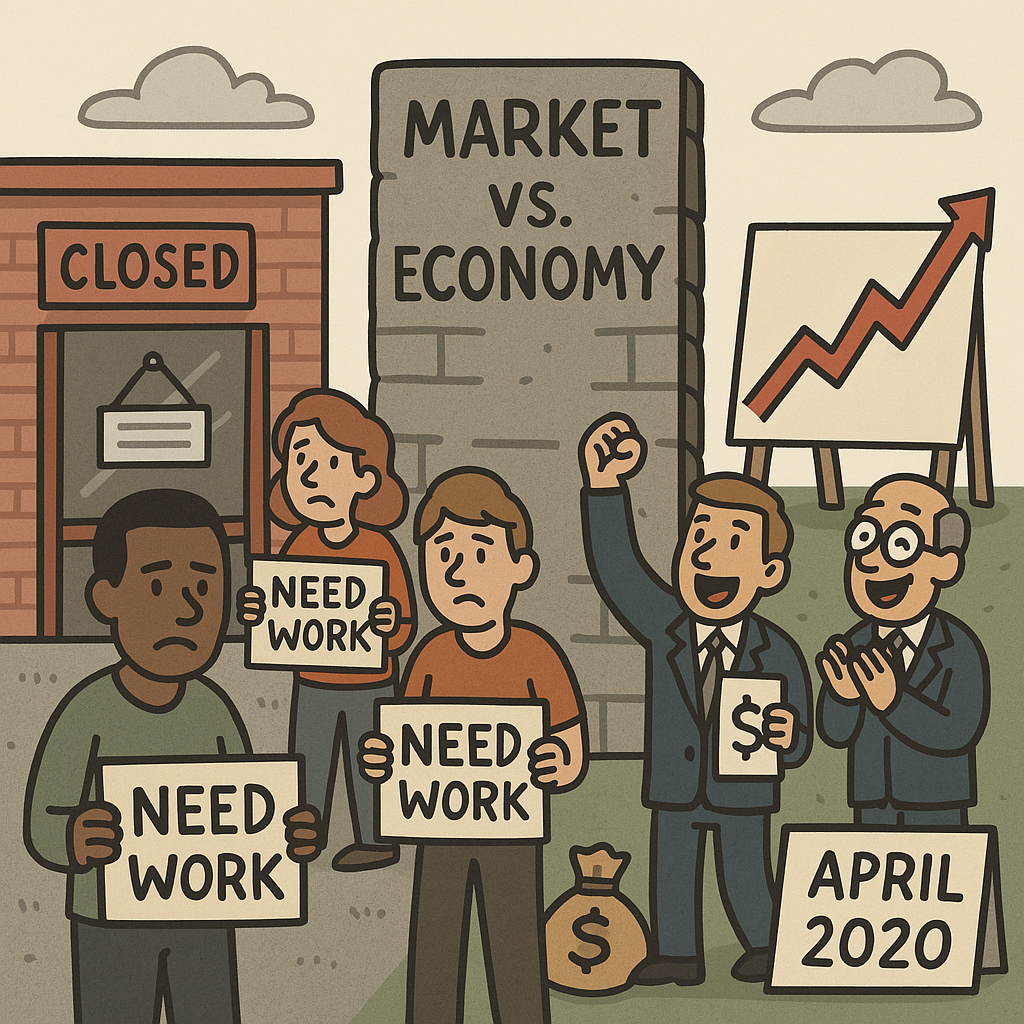
How the Economic Engine Stalled Even While the Market Rebounded
Wall Street vs. Main Street
During the COVID crash in 2020, something weird happened:
- The real economy was collapsing
- But the stock market started going back up
So what gives?
If businesses were closed and millions lost jobs…
…why was Wall Street celebrating?
Let’s break it down.
Unemployment Skyrocketed
By April 2020, the U.S. unemployment rate hit 14.7%—the highest since the Great Depression.
That meant:
- Restaurants shut down
- Offices emptied
- Millions of people lost income overnight
Entire sectors like travel, entertainment, and retail went dark.
For everyday people, this wasn’t a recession—it was a sudden stop.
GDP Fell Off a Cliff
GDP = Gross Domestic Product = The total value of everything the economy produces.
In Q2 of 2020:
- The U.S. GDP shrank by 33% (annualized)
- That’s the biggest drop in U.S. history
- Production, exports, consumer spending—all down hard
Basically:
The economy hit the brakes. Everything slowed. Fast.
So… Why Did the Stock Market Go Back Up?
Two reasons:
- The Federal Reserve (remember them?) pumped in trillions
- Free money = investor confidence = stock rebound
- Wall Street priced in the future, not the present
- Investors bet that things would recover fast
- Tech companies like Amazon, Zoom, and Microsoft thrived during lockdown
So while real people were struggling, markets were betting on a post-COVID bounce-back.
he Disconnect: Why It Matters
- It showed how markets and real life can tell different stories
- It proved the power of stimulus, optimism, and tech dominance
- It confused a lot of people—and sparked debates about fairness, inequality, and reality
Understanding the gap between GDP, unemployment, and stock markets helps you:
- Think critically about what headlines really mean
- Understand who benefits (and who doesn’t) from market rallies
- Stay grounded in real-world economics—not just charts
The market is not the economy. It’s just a reflection of what people hope the economy will be.”
In 2020, hope came roaring back—but reality took longer to heal.

